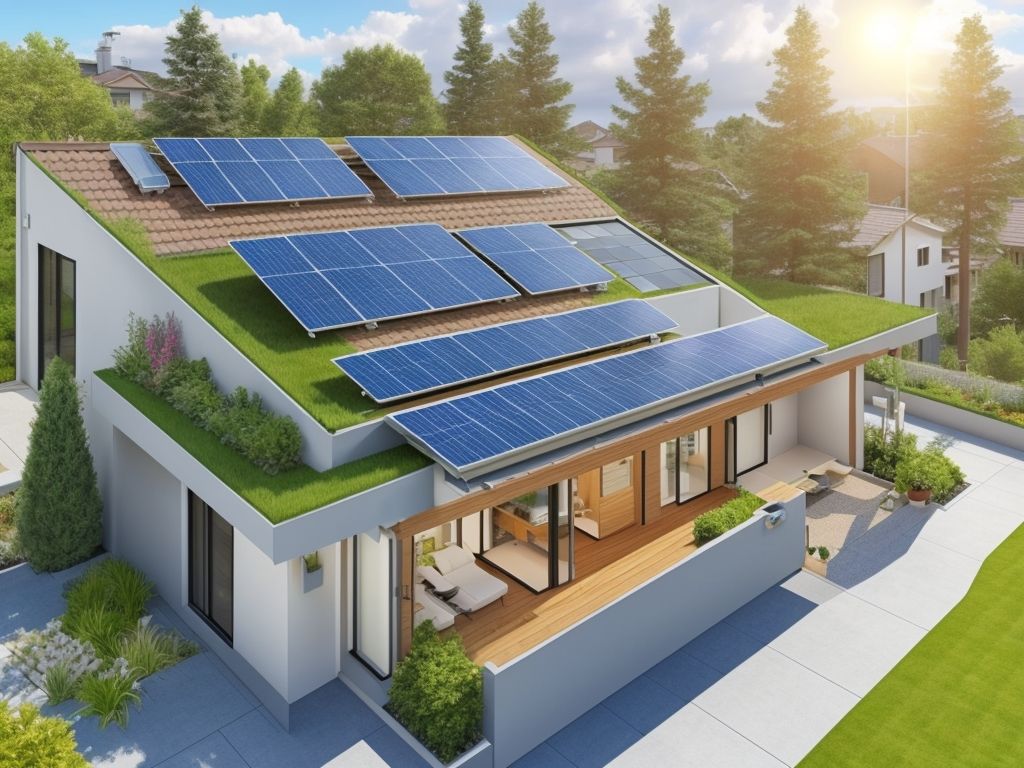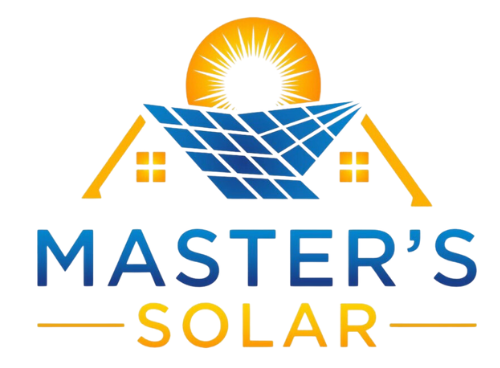Solar power has become increasingly popular with homeowners who want a clean, sustainable energy source. One question that comes to mind is, “How much does a solar system cost?” Knowing the financial investment is key for determining if it’s right for you.
Costs vary based on several factors. Home size, energy needs, and equipment quality all have an effect. Generally, installation costs range from $15,000 to $40,000. Though costly upfront, there are long-term savings with solar power.
Your state likely has government incentives and tax credits available. Research the programs in your area. Additionally, many solar companies offer financing options so you don’t have to pay all at once.
Solar panels used to be expensive and inefficient. But new technology has made them more accessible and efficient. Climate change awareness has caused a surge in adoption of solar systems by homeowners.
Factors Affecting the Cost of a Solar System for a Home
System size, installation costs, equipment quality, and location all have a huge influence on the total cost of a home solar system. A table can help explain this effect, with columns for system size, installation costs (labor & permits), quality (high-end or standard), and location-specific incentives/rebates.
For example, a 6 kW system with high-end equipment and a $2,000 rebate would cost $15,000. A 10 kW system with standard equipment and no incentives would cost $25,000. An 8 kW system with high-end equipment and a $1,500 rebate would cost $20,000.
Roof condition and orientation can also impact costs. If the roof needs repairs, it’ll add to expenses. An ideal orientation for maximizing solar energy output could reduce costs by optimizing panel efficiency.
John and Sarah’s story proves the importance of these factors. They chose a larger system and high-end equipment, and got a substantial rebate due to their location. This allowed them to offset part of their upfront investment, leading to long-term savings on energy bills.
Steps to Determine the Cost of a Solar System for Your Home
Figuring out the cost of a solar system for your home may seem tricky. But if you follow these steps, it’s easy to calculate the expenses!
- Estimate your energy needs. Look at your typical monthly electricity use. This will give you an idea of how much solar power you need.
- Work out the system size. Think about how much roof space and sunlight exposure you have. You may want to get advice from a pro to be sure you size it correctly.
- Work out installation costs. Consider the panels, inverters, wiring, and any extra fees for permits or inspections. Research suppliers and get multiple quotes to find better prices.
In recent years, technology has made solar installations cheaper. As more people use renewable energy, the costs go down. So don’t be scared off by the cost – with careful planning and research, solar power could be within reach for your home!
Financing Options for Solar Systems
Choices for funding solar systems vary a lot, to help homeowners pick the right one for them. Here’s a list of the usual alternatives:
| Financing Option | Description | Pros |
|---|---|---|
| Cash Purchase | Pay upfront with cash or savings | No interest payments. Immediate savings on energy bills |
| Solar Lease | Renting the solar system from a provider | No initial costs. Maintenance included |
| Power Purchase Agreement | Buying solar power at a fixed rate from a provider | Predicted energy costs. No installation expenses |
| Home Equity Loan | Borrowing against the equity in your home | Possibly lower interest rates. Tax deductions |
| Personal Loan | Taking out a loan specifically for solar | Flexible loan terms. Possible tax incentives |
Note: Not all options are available everywhere, and each has specific eligibility and requirements.
Solar leasing is a fascinating story. In the late 2000s, it emerged as a way to get around the high up-front cost of solar systems. This model allowed people to “rent” solar panels, paying a fee monthly, while still getting reduced energy costs. Over time, this system made solar power more accessible and affordable for many households.
Additional Considerations and Tips for Solar System Cost
When looking into the cost of a solar system for your home, there are a few more things to keep in mind. Here’s some helpful advice:
| Consideration | Importance |
|---|---|
| Location | High |
| Size of System | High |
| Quality of Equipment | Medium |
| Installation Costs | Medium |
| Financial Incentives | Medium |
It’s important to consider your location. Different areas get different amounts of sunlight, which will affect how much electricity your system will make.
The size of your system is also key. Bigger systems will generate more power, but they also cost more. You need to find the right size for your needs and budget.
Think about the quality of equipment too. Quality parts cost more at first, but they can save you money in the long run because they work better and last longer.
Installation costs also matter. Hiring a professional can help your system work better and run longer.
Lastly, check for financial incentives in your area. Governments often have rebates and tax credits for solar systems, so they are more affordable.
Dating back centuries, solar power has been used as an energy source. Ancient cultures like Greeks and Romans heated water with sunlight. Over time, new tech has made it possible to turn sunlight into electricity, leading to modern solar systems.
Conclusion
Installing a solar system for your home can be a wise investment. It offers both environmental benefits and cost savings. The initial cost depends on the size of your home and energy needs. But, there are options available to make it more affordable.
One way is through incentives. Governments provide tax credits or rebates for solar panels. This reduces the overall expense. Some utility companies also offer leasing options with little or no upfront costs.
You can decrease reliance on grid power and potentially eliminate monthly energy expenses. Savings over time can offset the initial investment.
Technology advancements have made solar panels more efficient and affordable. The cost per watt has decreased. Even though installation costs are high, the return on investment is still good.
For example, John was hesitant about high costs. But, he soon found out about financial incentives. With federal tax credits and a state rebate program, he reduced his out-of-pocket expenses by 50%. The remaining amount was financed through a solar lease. He now enjoys yearly savings on electricity bills and reduced reliance on non-renewable energy sources.
Frequently Asked Questions
1. How much does a solar system cost for a home?
The cost of a solar system for a home varies depending on several factors such as the size of the system, the location of the home, and the specific needs of the homeowner. On average, a residential solar system can cost anywhere from $15,000 to $30,000 before tax incentives or rebates.
2. Are there any financial incentives available for installing a solar system?
Yes, there are several financial incentives available for homeowners who install solar systems. These incentives include federal tax credits, state and local rebates, and net metering programs. These incentives can greatly reduce the overall cost of a solar system.
3. Will a solar system save me money on my energy bills?
Yes, a solar system can save you money on your energy bills. By generating your own electricity, you can offset the amount of electricity you need to purchase from your utility company. Over time, the savings in energy costs can outweigh the initial investment of the solar system.
4. How long does it take to recoup the cost of a solar system?
The time it takes to recoup the cost of a solar system depends on various factors such as the size of the system, local energy rates, and the amount of energy consumed. On average, homeowners can expect to recoup their investment within 5 to 15 years.
5. Can I finance the cost of a solar system?
Yes, there are various financing options available for homeowners to cover the cost of a solar system. These options include solar loans, leases, or power purchase agreements (PPAs). It is advisable to explore these financing options to determine the best fit for your financial situation.
6. How long does a solar system typically last?
A well-maintained solar system can last for 25 to 30 years or even longer. However, the actual lifespan of a solar system can vary depending on factors such as the quality of the system, environmental conditions, and regular maintenance.
Related posts:
- How Much Does Solar Increase Home Value? | Zillow Insights
- How Much Do Home Solar Panels Cost? A Complete Guide to Solar Panel Prices
- Determining the Perfect Size: How Much kW Solar Panel is Required for Your Home
- How Many Solar Panels to Power Home? A Comprehensive Guide on Calculating Solar Panel Requirements



